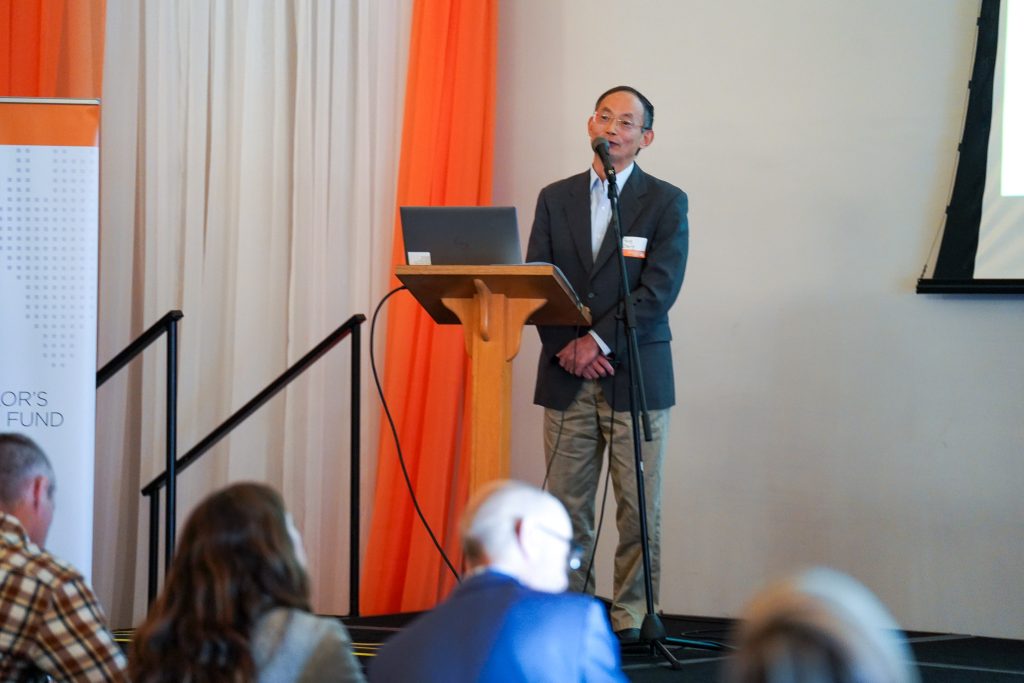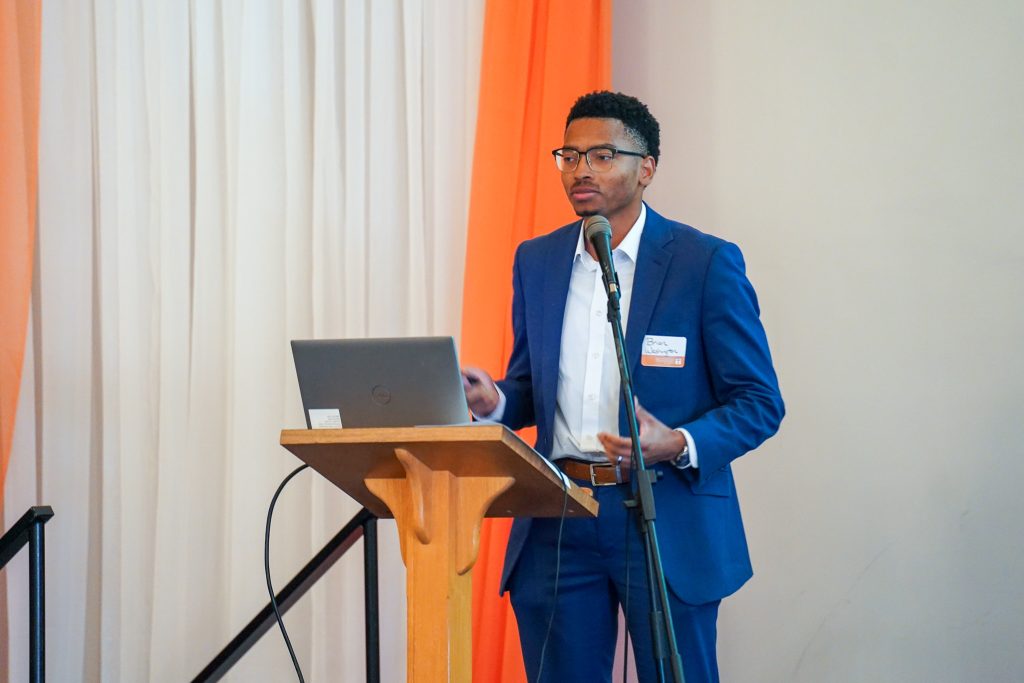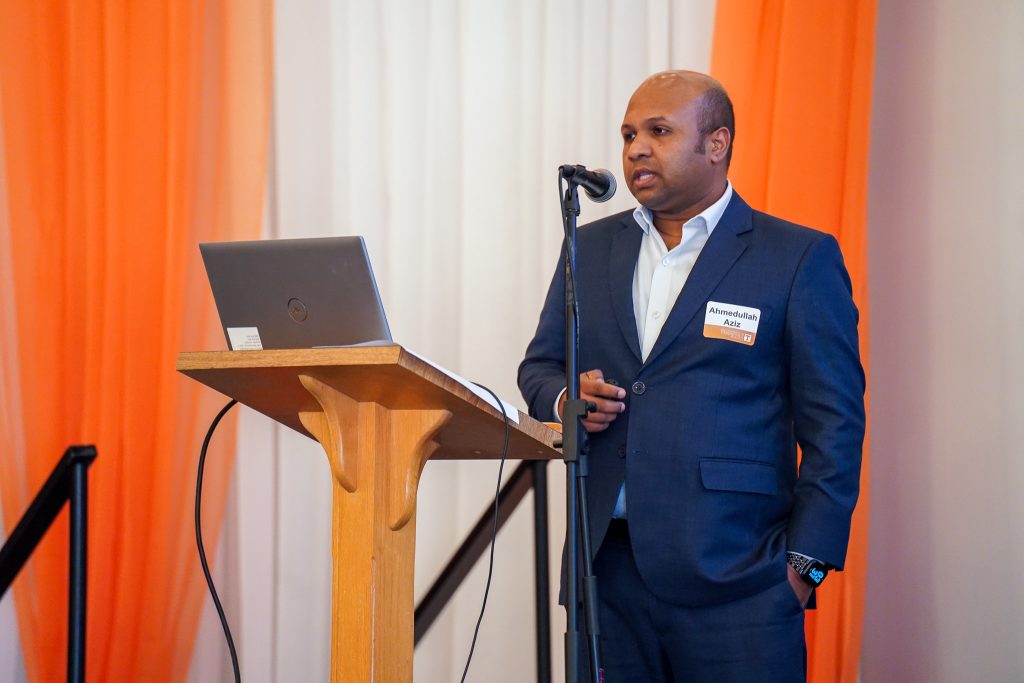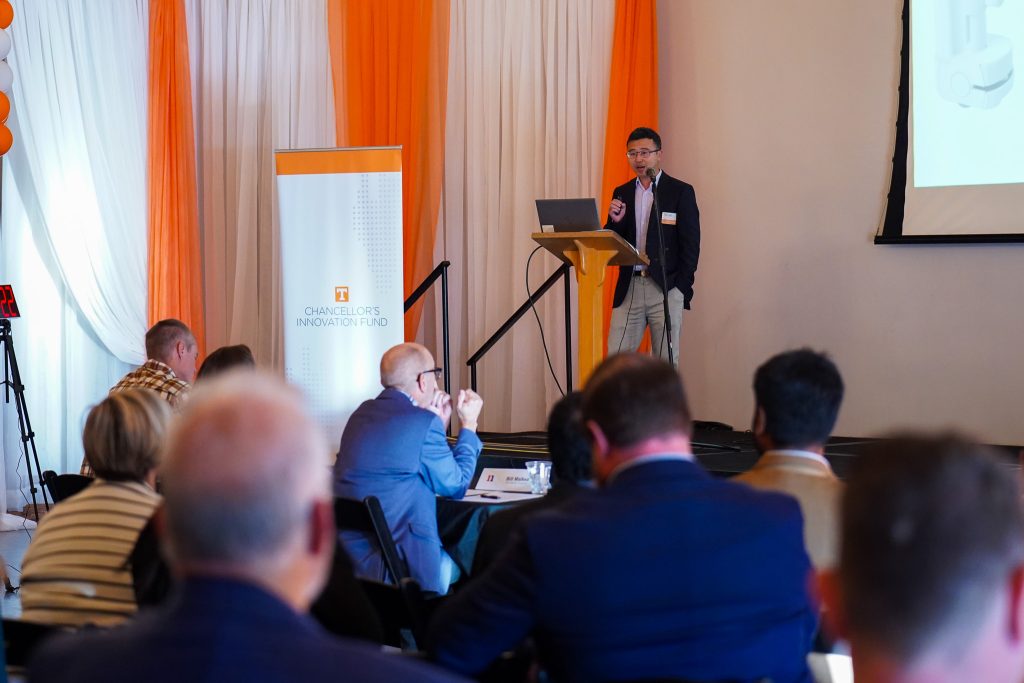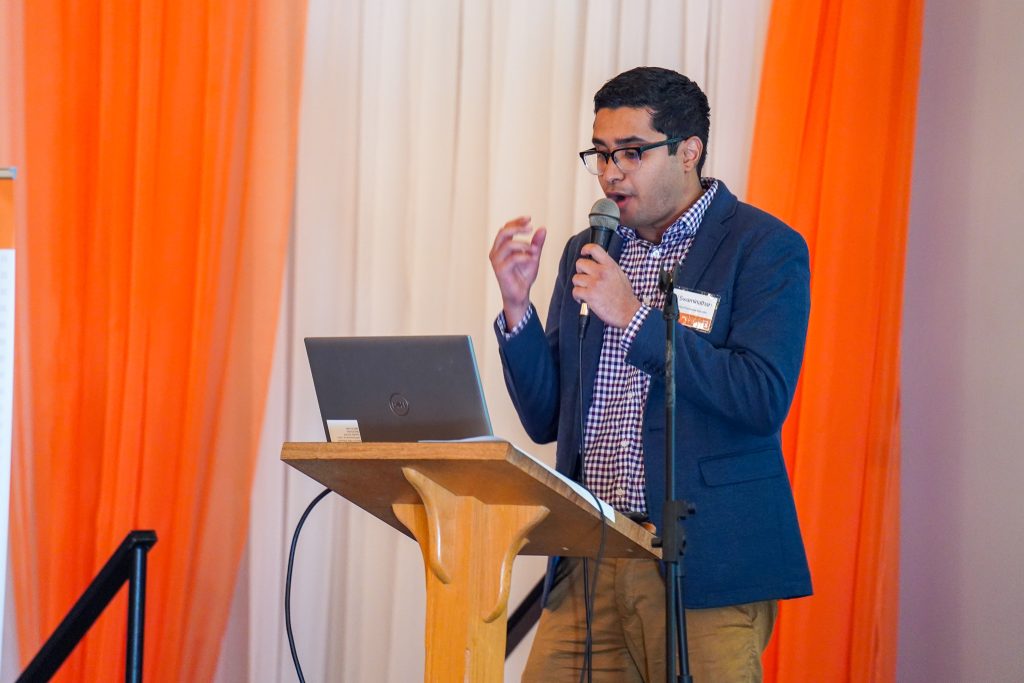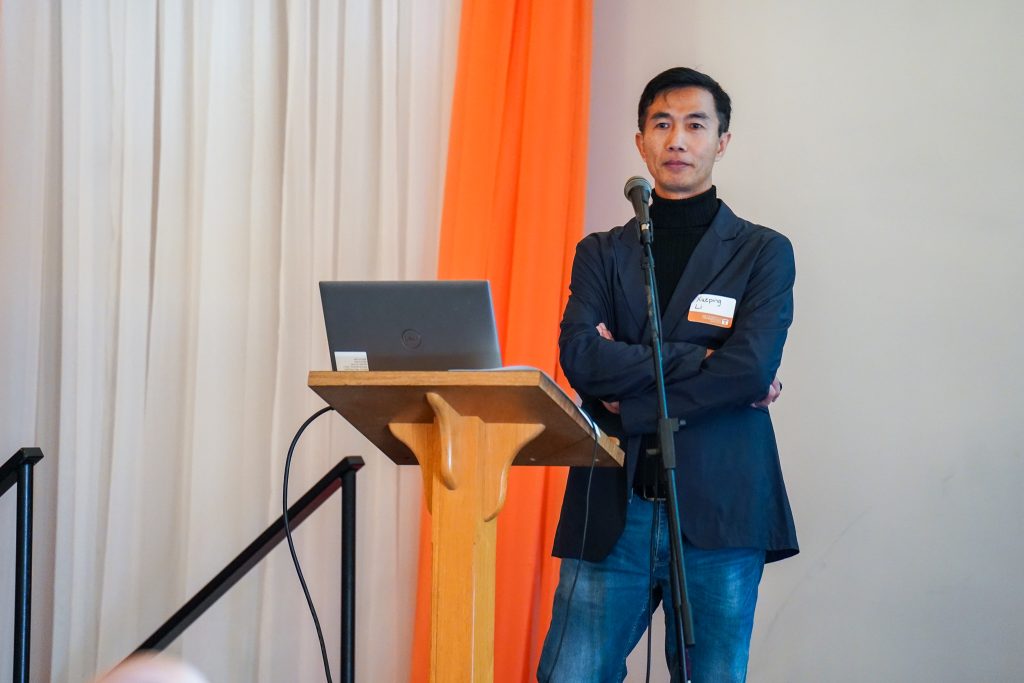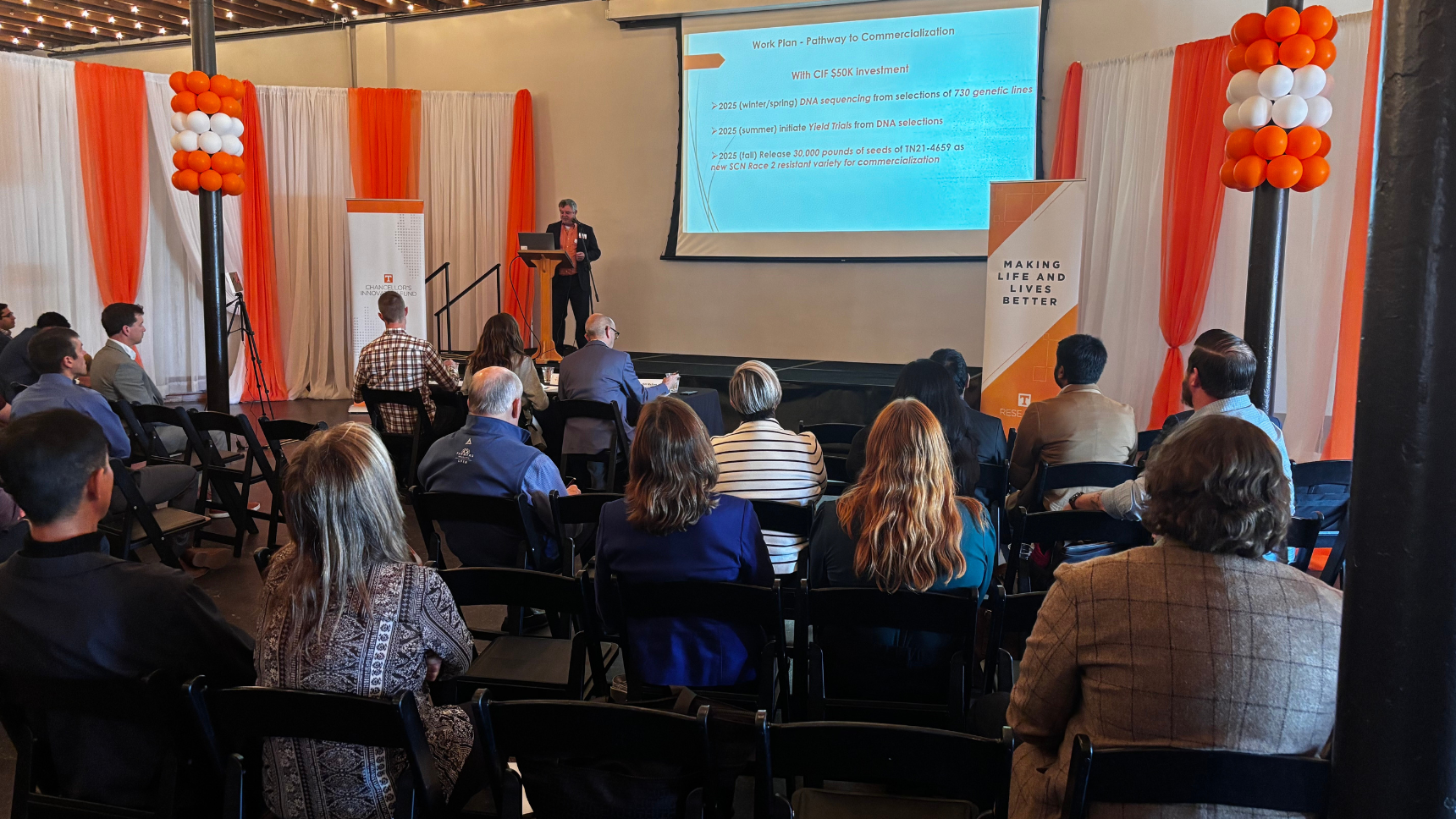
Eight pitch for dollars during the second annual UTK “Chancellor’s Innovation Fund” event
Ideas covered a broad spectrum - from restocking supermarket shelves to using AI to read cancer staging reports.
The presentations covered the technology waterfront on Tuesday afternoon when eight University of Tennessee, Knoxville (UTK) faculty members pitched their ideas for funding under the second iteration of the Chancellor’s Innovation Fund.
Their ideas ranged from robots to more efficiently stocking grocery shelves to a patent-pending DNA-sequencing technology for soybean nematode resistance and an enhancement to those 13 million people who undergo “traumatic amputation” annually. The eight pitched their ideas to three judges during an event at The Relix Venue hosted by UTK’s Office of Research, Innovation, and Economic Development (ORIED). The judges were:
- Brandon Bruce, a local serial entrepreneur and Managing Partner of Market Square Ventures;
- Bill Malkes, a serial entrepreneur who is serving as Chief Executive Officer of Knoxville start-up NellOne Therapeutics; and
- Lilly Tench, Director of the Spark Innovation Center at the UT Research Park at Cherokee Farm.
Five of the eight are expected to receive up to $50,000 each to further advance their inventions. The winners will be announced at an event on February 18. Tuesday’s presenters were selected from 23 UTK faculty who applied for the opportunity, according to Marc Nabhan, ORIED’s Assistant Director of Entrepreneurship and New Ventures, who moderated the event.
“Everyone presenting today will have a UTRF (UT Research Foundation) invention disclosure,” he added.
The first presenter was Dr. Vince Pantalone, a Professor in the UT Institute of Agriculture who oversees UTIA’s soybean breeding and genetics program that uses a combination of classical plant breeding and DNA laboratory technologies to develop high-yielding cultivars that are resistant to pests and adapted to the climate, soil, and cultural practices of Tennessee, the Mid-South, and the Southeast.
In his pitch, he noted that soybeans are the top agricultural product in Tennessee, and soybean cyst nematodes (SCN) resistance causes $1.5 billion in damages across the nation each years. Pantalone has developed the first patent-pending gene that is resistant to Race 2 SCN. His commercialization plan calls for the release of 30,000 pounds of the Race 2 resistant seeds by the end of October of 2025.
“We’ve worked on Race 2 since 1999,” the year after he arrived at UTK, Pantalone said.
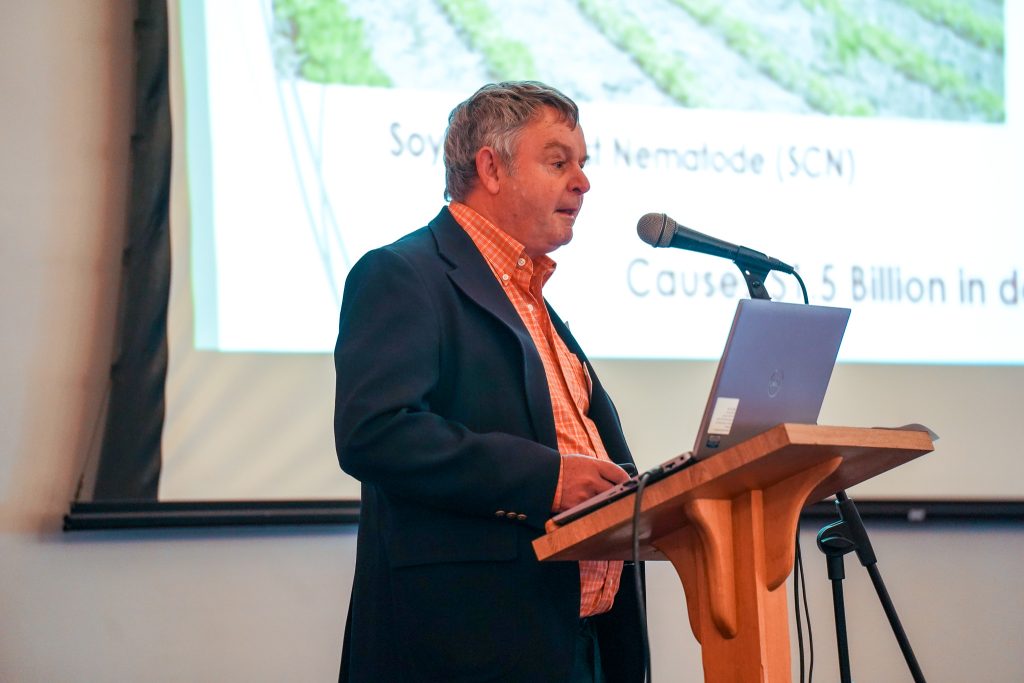
Dr. Dustin Crouch, an Associate Professor of Mechanical, Aerospace and Biomedical Engineering (MABE) in UTK’s Tickle College of Engineering, is a participant in the latest cohort of the “Mid-South I-Corps” program which warp-ups on Thursday with presentations on what they have learned and their paths forward.
As he noted in the kick-off session for “I-Corps,” he has chosen to focus on the thumb, one of the more prevalent causes of “traumatic amputation” with 550 million people currently living with it. Among the deficiencies of currents solutions are the fact that there is no touch sensation, and the movement is limited and unnatural.
“We can expand quickly from the thumb to toes and non-thumb hand digits,” Crouch said, adding that U.S. Food and Drug Administration is still a long way off. He’s targeting 2031.
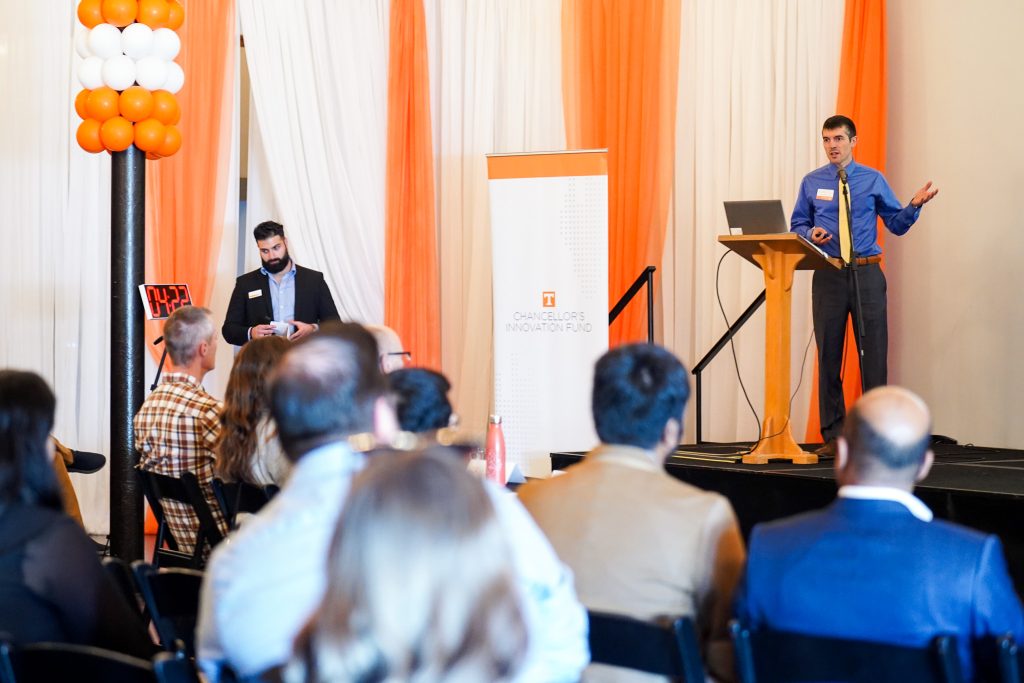
Supported by Dr. Thomas Zawodzinski, UT-Oak Ridge National Laboratory Governor’s Chair for Electrical Energy Conversion and Storage who was in the audience, newly minted Dr. Brian Washington pitched the idea for aluminum-air batteries (see recent teknovation.biz article here). Noting that aluminum-air batteries “can increase storage by an order and magnitude” and only need aluminum and air, he said that the company plans to have customers by Q3 of 2025 and a product available in Q4. The $50,000 would help fund part of the development of the minimum viable product that Washington estimated to cost about $250,000.
Dr. Ahmedullah Aziz, an Assistant Professor of Electrical Engineering and Computer Science, started his presentation by saying, “We see with our eyes, and our brain helps us understand what we see.” His pitch, titled “Intelligent Image Sensors for Enhanced Security and Processing,” is another patent-pending technology that targets the defense and surveillance markets.
“We want to redefine digital vision, one pixel at a time,” the tagline read.
Another Professor in the MABE program – Dr. Feng-Yuan Zhang – pitched his patent-pending technology that he says can reduce the cost of green hydrogen for fuel from $5 per kilogram to $1 per kilogram. Noting that the demand for green hydrogen is growing by 40 percent a year and is only expected to continue to grow exponentially, his invention can reduce the cost of the catalyst by 90 percent.
Dr. Xueping Li, Professor and Dan Doulet Faculty Fellow in the Department of Industrial and Systems Engineering and also Co-Director of the Health Innovation Technology and Simulation Lab, described a project using artificial intelligence (AI) to turn what was typically a two-hour process into two clicks. As we learned separately, the idea first came from Dr. John Bell, a renowned surgical oncologist and the inaugural Director of the Cancer Institute at the UT Medical Center, who wondered how AI could help extract data faster from cancer technology staging reports.
Working with Drs. Li and Bing Yao from the Tickle College and Dr. Tom Berg from the UTK College of Nursing, they have focused initially on breast cancer, reading the reports to determine how much cancer is within the body and if it has spread.
Dr. Sai Swaminathan, Assistant Professor of Electrical Engineering and Computer Science, has developed a technology to transform smart manufacturing. Initially focused on the robust automotive manufacturing and supplier base in Tennessee, he said that smart manufacturing involves “lots of sensors, and they need lots of batteries.” Using what is known as LiFi, a bidirectional wireless system that transmits data via LED or infrared light, Swaminathan touted the fact that the technology allows for self-powered Internet of Thing devices, providing real-time manufacturing, and perhaps most important, “No data leaves the building.”
The final pitch came from Dr. Shuai Li, an Associate Professor of Civil and Environmental Engineering, who told attendees that the idea for the restocking of supermarket shelves came after 300 interviews. That was not his original focus, but learned how much was being lost annually is sales – $82 billion – due to people leaving grocery stores because the shelves were bare. Li plans to use robots that would be trained to restock shelves and believes the technology can save 20 percent in personnel costs for an already labor-challenged sector while increasing sales by five percent.
He plans to launch the company and its products by 2027.
Like what you've read?
Forward to a friend!

